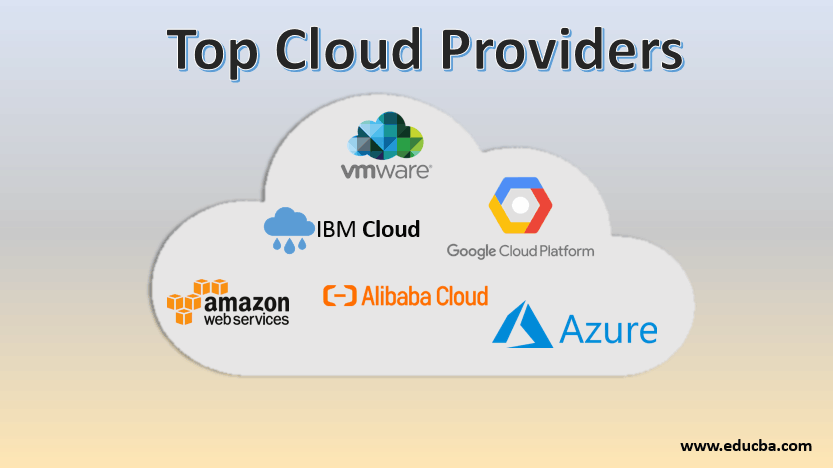Introduction: As businesses continue to embrace the power of the cloud, the demand for reliable and innovative cloud service providers has reached new heights. Cloud computing has become an essential component of modern business strategies, enabling organizations to scale, streamline operations, and accelerate digital transformation initiatives. In this article, we will explore the top 10 cloud service providers of 2023, each offering unique capabilities and services to meet the diverse needs of businesses worldwide.
- Amazon Web Services (AWS): As a pioneer and market leader in cloud computing, AWS maintains its position at the forefront of the industry. With a comprehensive suite of services, including computing power, storage, databases, and artificial intelligence (AI), AWS offers scalability, reliability, and flexibility to cater to businesses of all sizes. Its vast global infrastructure and extensive partner ecosystem make it a top choice for enterprises across various industries.
- Microsoft Azure: Microsoft Azure has emerged as a strong contender in the cloud services market, leveraging its deep enterprise relationships and expertise. Azure offers a wide range of services, including infrastructure-as-a-service (IaaS), platform-as-a-service (PaaS), and software-as-a-service (SaaS), empowering organizations to build, deploy, and manage applications seamlessly. Azure’s integration with other Microsoft tools and technologies makes it an attractive choice for businesses invested in the Microsoft ecosystem.
- Google Cloud Platform (GCP): Google Cloud Platform has rapidly gained popularity with its robust infrastructure and advanced data analytics capabilities. GCP offers a broad set of services, including compute, storage, networking, and machine learning. With its focus on data-driven insights and AI capabilities, Google Cloud has become a preferred choice for organizations seeking innovative solutions to leverage their data effectively and gain a competitive edge.
- IBM Cloud: IBM Cloud combines the strengths of traditional enterprise capabilities with modern cloud technologies. Its portfolio includes a wide array of services such as infrastructure, platform, and software offerings, as well as industry-specific solutions. IBM Cloud stands out for its emphasis on hybrid and multi-cloud environments, enabling organizations to seamlessly integrate their existing infrastructure with cloud services and create a flexible and scalable IT ecosystem.
- Oracle Cloud: Oracle Cloud has steadily gained momentum as a leading cloud service provider, particularly in the realm of enterprise applications and databases. Oracle’s cloud offerings encompass infrastructure, platform, and software services, along with specialized solutions for areas such as ERP, HCM, and CX. With its focus on delivering enterprise-grade performance, security, and reliability, Oracle Cloud caters to the needs of large enterprises and mission-critical workloads.
- Alibaba Cloud: As a dominant player in the Asian market, Alibaba Cloud has experienced significant growth and expanded its global footprint. Alibaba Cloud offers a comprehensive suite of cloud services, including computing, storage, networking, and AI. Its strength lies in serving organizations with operations in Asia, with localized services and expertise in compliance and data sovereignty.
- Salesforce: While primarily known for its customer relationship management (CRM) solutions, Salesforce has expanded its offerings to include a robust cloud platform. Salesforce’s cloud services enable organizations to build and deploy business applications quickly and efficiently. Its focus on customization, integration, and automation makes it a go-to choice for businesses seeking cloud-based solutions for their sales, marketing, and service operations.
- VMware Cloud: VMware, a leader in virtualization and data center technologies, has extended its expertise to the cloud through VMware Cloud. This offering allows organizations to seamlessly extend their on-premises infrastructure to the cloud, providing a consistent and unified experience. With its focus on hybrid cloud solutions and strong integration with existing VMware environments, VMware Cloud caters to businesses seeking a smooth transition to the cloud while maintaining their existing IT investments.
- Tencent Cloud: Tencent Cloud is a major player in the Chinese cloud services market, offering a wide range of services tailored to businesses in the region. It provides infrastructure, databases, AI, and other cloud services, while leveraging Tencent’s vast ecosystem and expertise in internet-based products and services. Tencent Cloud is well-positioned to serve the growing demands of businesses in Asia, particularly in industries such as gaming, entertainment, and e-commerce.
- Adobe Experience Cloud: Adobe Experience Cloud focuses on delivering cloud-based solutions for digital marketing, analytics, and customer experience management. With its suite of products, including Adobe Marketing Cloud, Adobe Analytics Cloud, and Adobe Advertising Cloud, it enables businesses to create personalized and impactful experiences for their customers across various channels. Adobe Experience Cloud appeals to organizations looking to enhance their digital marketing capabilities and optimize customer engagement.
Conclusion: The top 10 cloud service providers of 2023 present a diverse range of offerings, catering to different business needs and requirements. Whether it’s the expansive services of AWS and Azure, the data-driven insights of Google Cloud and IBM Cloud, or the specialized industry solutions of Oracle Cloud and Salesforce, these providers empower organizations to leverage the power of the cloud and drive digital transformation. As businesses continue their journey towards the cloud, selecting the right cloud service provider is crucial to achieving scalability, agility, and innovation in the ever-evolving digital landscape.





